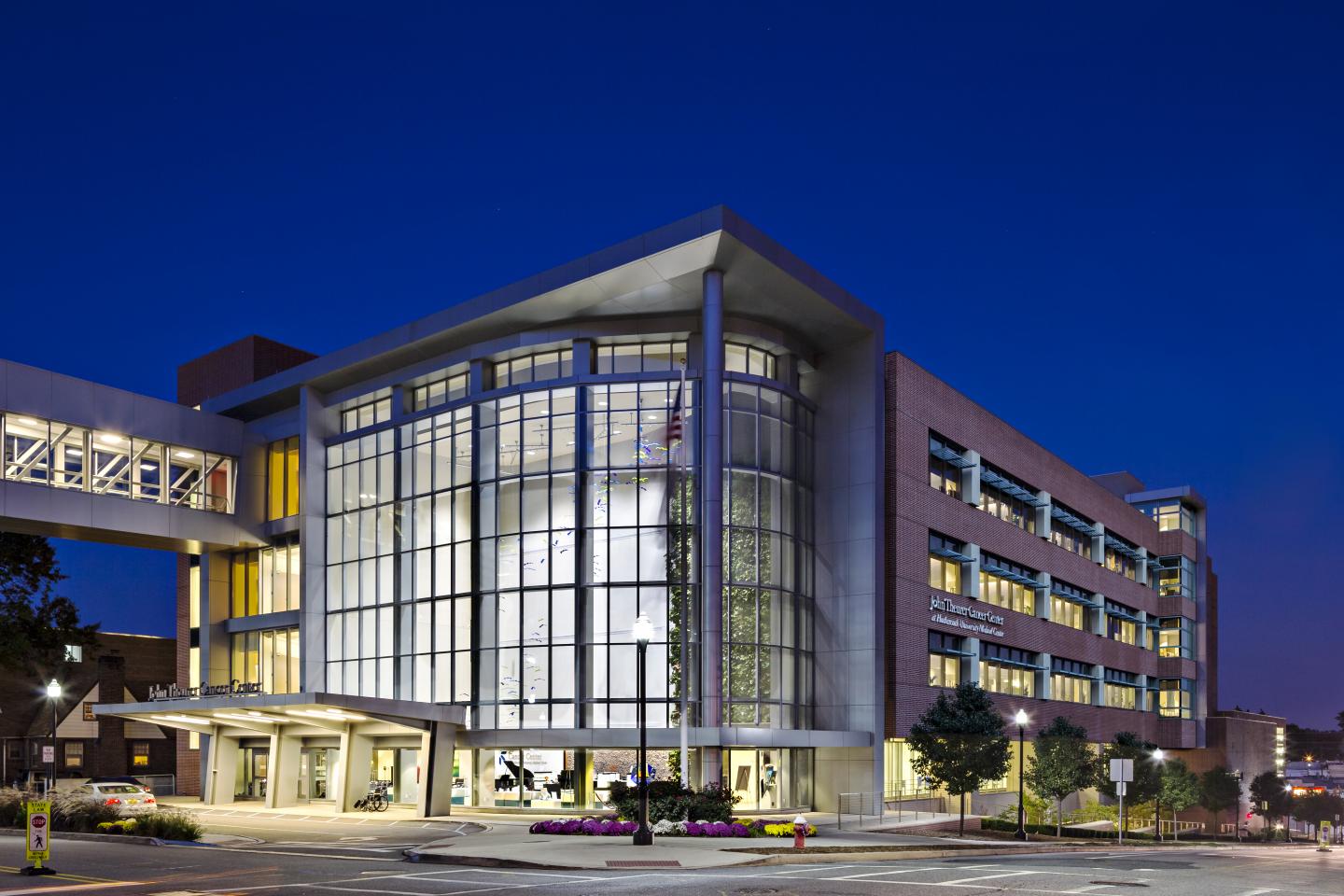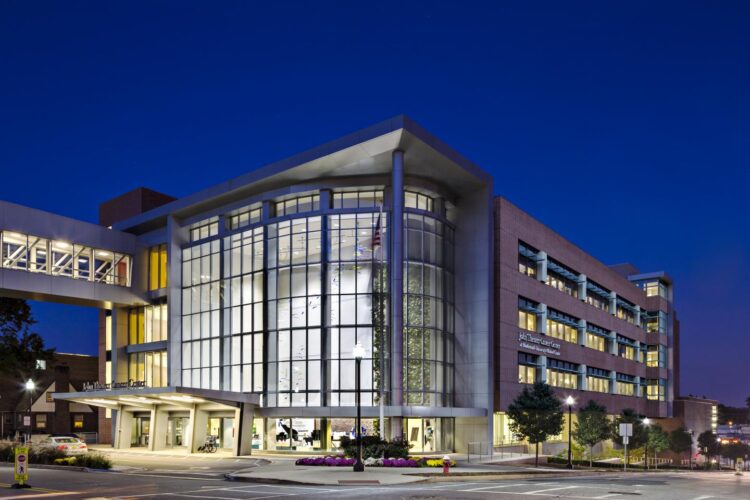John Theurer Cancer Center, Georgetown Lombardi Comprehensive Center collaboration achieves remission

Credit: (Hackensack Meridian Health)
October 15, 2020 – Nutley, NJ – A patient with end-stage and rapidly progressing soft-tissue cancer whose tumor did not respond to standard treatment, had a “rapid and complete response” to a novel combination of immunotherapy, according to new research published by a team of scientists from John Theurer Cancer Center at Hackensack University Medical Center and the Georgetown Lombardi Comprehensive Cancer Center, both of whom are part of the Georgetown Lombardi Comprehensive Cancer Center Consortium.
The immunotherapies targeting the immune checkpoints T-lymphocyte-associated protein 4 (CTLA-4) and programmed cell death protein 1 (PD-1) were administered to a 19-year-old patient with stage 4 epithelioid sarcoma. The patient, whose tumor responded within two weeks after receiving the combination, resumed normal activity and was in a complete remission at the time of the report. The single case was reported online August 18, 2020 in the Journal of Immunotherapy (with the patient’s consent).
“Epithelioid sarcoma is a rare cancer, and the outcome was not expected to be so positive,” said Andrew Pecora, M.D., F.A.C.P., C.P.E., the division chief of skin cancer and sarcoma services at John Theurer Cancer Center. “The breakthrough in this patient’s care was the result of the close collaboration between clinician scientist of the Consortium to elucidate the underlying mechanisms that suggested potential sensitivity to the checkpoint inhibitors.
“The teamwork in this case, which involved experts from our Consortium, turned things around for this patient,” said Louis M. Weiner, M.D., director, Georgetown Lombardi Comprehensive Cancer Center and the MedStar Georgetown Cancer Institute. “The team will follow the patient closely in hopes that we can continue to keep the cancer at bay.”
The patient was first diagnosed with the soft-tissue sarcoma along the spine in 2017, as a 17 year old. Chemotherapy, radiation and standard of care drugs, were administered, and surgery was performed to achieve partial response. The patient was admitted to the hospital in April 2019 in severe pain and his cancer had progressed to stage 4.
Most cases of epithelioid sarcoma show an inactivation of a protein-coding gene known as SMARCB1. That inactivation leads to the suppression of INI1, a gene that codes for a tumor-suppressing protein, effectively causing a biological chain reaction that promotes tumor growth.
The doctors at John Theurer Cancer Center, working as a team with Georgetown’s experts, obtained a compassionate use authorization to try two checkpoint inhibitors, ipilimumab (anti-CTLA4) and nivolumab (anti-PD1) in May 2019.
By October, the patient was in complete remission. As of his last visit in June 2020, he has resumed normal activities and normal physical examination and is essentially asymptomatic.
According to the report, the patient’s tumor was reliant on the lack of INI1. But the checkpoint inhibitors apparently unmasked the immune system, making the cancer cells susceptible to the body’s natural defenses again.
The researchers write that more about the dramatic reversal of the patient’s cancer needs to be further investigated, particularly what effect the chemotherapy before and after the checkpoint inhibitors may have had.
“Immune checkpoint inhibitors are finding a way to effect previously impossible outcomes and we are trying to learn about the precise indicators that suggest clinical utility of the checkpoint inhibitors,” said senior author Jeffrey Toretsky, M.D., a professor of oncology and pediatrics at Georgetown Lombardi and chief of MedStar Georgetown University Hospital’s Division of Pediatric Hematology/Oncology. “This patient opens a window for this exploration. We’re proud to be able to successfully treat patients in this way.”
“We are eager to see what our science can do for our sickest patients,” said Andre Goy, M.D., M.S., physician-in-chief of Oncology, Hackensack Meridian Health. “It seems like almost anything is becoming possible.”
###
In addition to Dr. Pecora and Dr. Toretsky, authors of the report include Steven Halpern, M.D.; Melinda Weber, DNP, RN, APN, AOCN; Elli G. Paleoudis, MS, Ph.D.; David Panush, M.D.; and Francis Patterson, M.D. All authors have declared that there are no financial conflicts of interest with regard to this work.
Media Contact
Seth Augenstein
[email protected]
Related Journal Article
http://dx.





